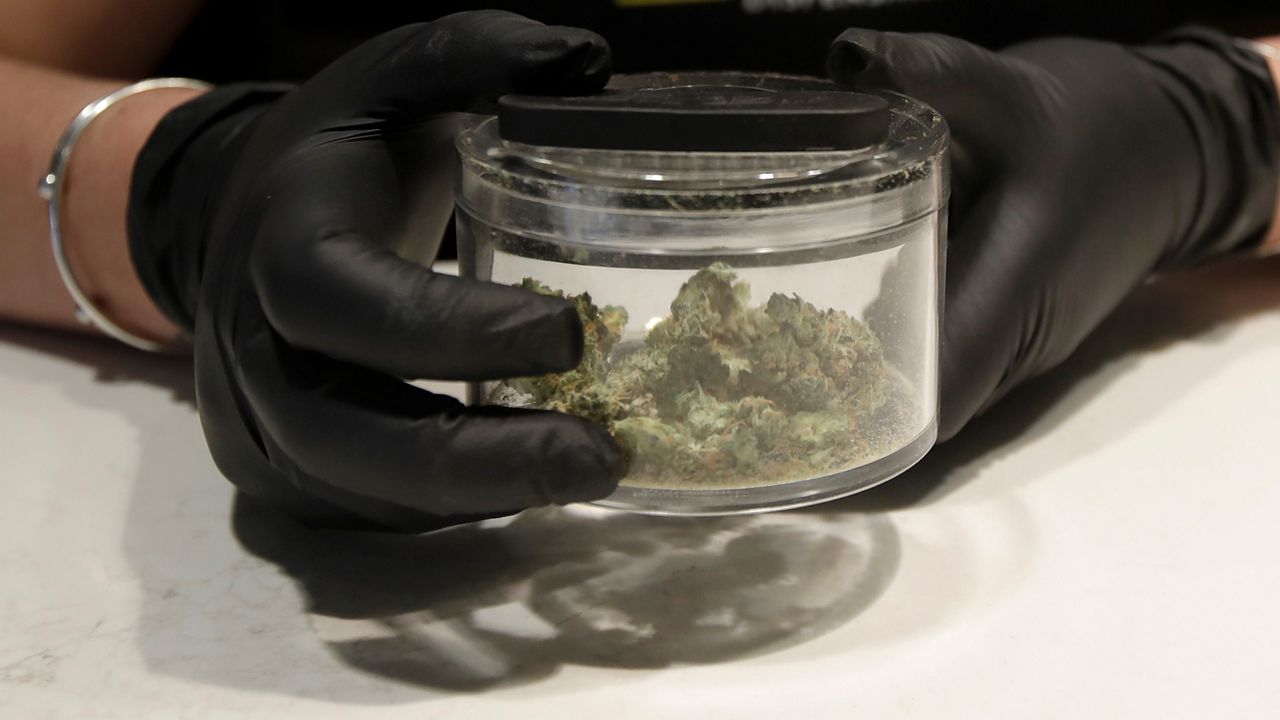ORANGE COUNTY, Calif. — When Planet 13 opened its Santa Ana legal marijuana dispensary a year ago, the chief executives expected it to take hold quickly.
But pandemic setbacks and a flood of product have made the price of marijuana per pound a moving target, but many agree the value is about half what it was last year.
“We know how depressed the market has been. It went down to 600, then back up to 800 and we’re hoping it will get back to where it was,” said Planet 13, co-CEO Larry Scheffler.
California marijuana growers have been flooding the market with products, yet only about two-thirds of the state has dispensaries. With cities left to decide for themselves on whether to grant licenses, many have been slow to allow legal dispensaries or have little or no interest in allowing them at all.
Scheffler said the biggest part of his company’s slow start has been a lack of name recognition.
“We want to be No. 1 in Orange County,” he said. “We’ve got all the bones for it. We just have to get the people.”
But market conditions remain uncertain, with advocates from small growers and independent sellers pointing to failures of state policies as the cause.
State rules indicated growers couldn’t have crops covering more than an acre. But a loophole has allowed some large growers to stack licenses and amass large amounts of product.
Michael Katz, executive director Mendocino Cannabis Alliance said the flood of supply is what has prevented smaller businesses from competing.
“We had a 20 year medical marijuana economy that was working, and these new regulations were like dropping a brand new house on an old house,” Katz said. “The only way to combat the unregulated market is to make the regulated market easier to access.”
Between taxes, the up and down cost of product and a byzantine regulatory system, any but the largest companies are in trouble. Add inflation and rising costs of everything from rent to gas and the near-term is bleak.
“It’s a crisis situation,” he said.
A big cause has been illegal marijuana sales, and not just in back alleys or over kitchen tables, but in a retail environment.
A 2020 report from Marijuana Business Daily showed that while there are 823 licensed retailers, over 3,000 delivery services and sellers operate in the state. That’s over 2,000 operating outside regulatory oversight.
Planet 13, which runs several successful locations in Nevada, has struggled to overcome these obstacles.
“What we found out is California is way different from Nevada,” Scheffler said. “It can be a fantastic store, but the challenge has been getting the word out.”
While name recognition is part of the equation, Sheffler said the illegal market has been another major hurdle for them. So has the unpredictable cost of the product, which may be because of the large amount of inventory but relatively small number of legal business looking to buy.
But no matter how bad it’s looking now, Scheffler expects the customers to find their way to his store, at 3400 Warner Ave. But the business conditions remain a challenge.
“We had no idea there was that much black market [in California].” he said.



